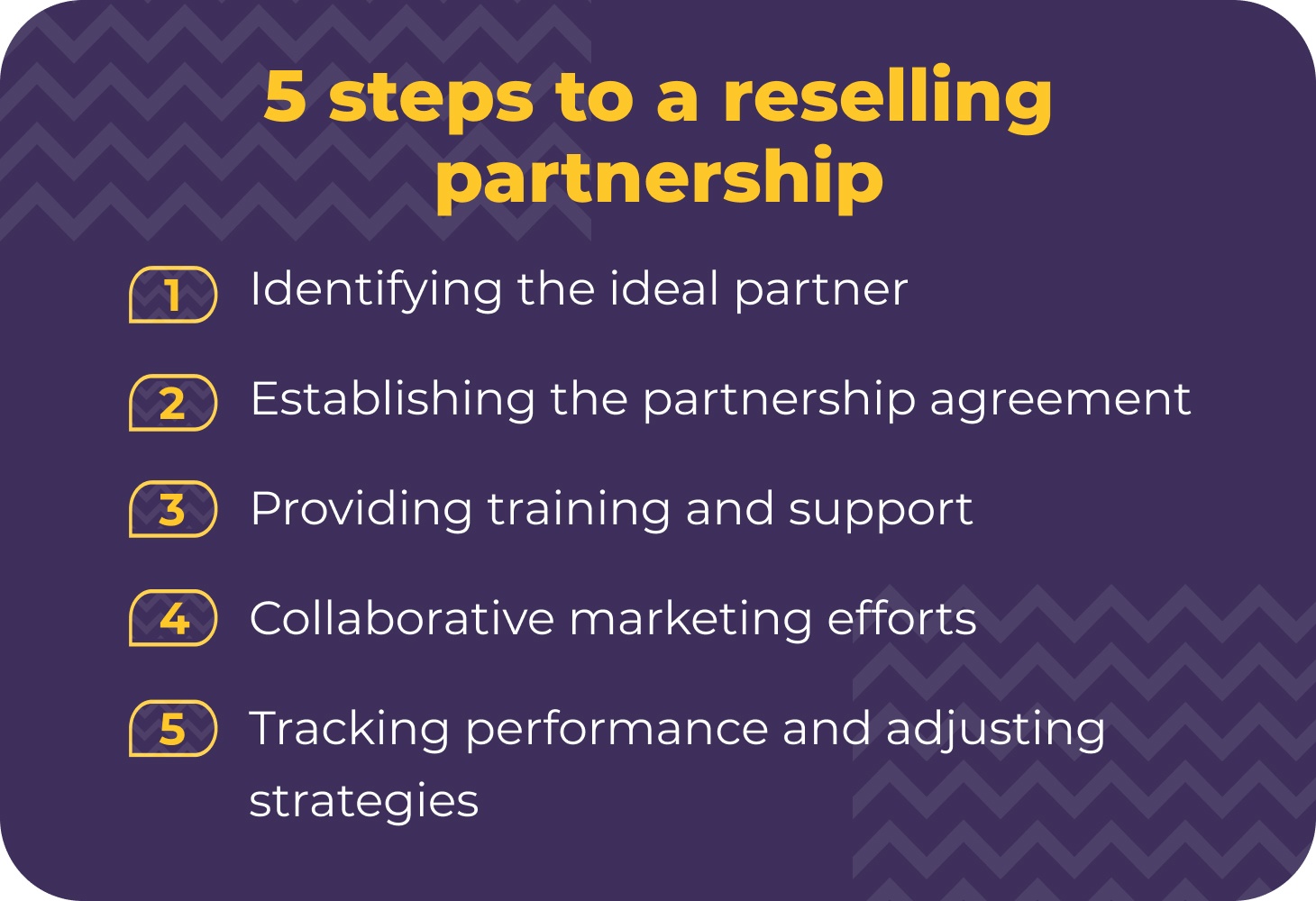As the business landscape continues to evolve, large organizations are recognizing the value of reselling partnerships in serving small businesses. Reselling partnerships have undergone significant transformations in recent years, enabling both resellers and small businesses to thrive in an increasingly competitive market.
With the rise of digital technologies and e-commerce, the focus of reseller partnerships has shifted towards online channels, expanding their global reach. Additionally, the collaborative approach has become more holistic, encompassing areas such as marketing, training, and support services, leading to greater customer engagement and loyalty.
These changes have enabled reseller partnerships to become a powerful business model, fostering shared success between large organizations and their small business clients.
In this blog, we will explore what reseller partnerships are, and how they work, and delve into the exciting future predictions that will reshape the landscape of this collaborative business model.
What is a reseller partnership?
A reseller partnership is a mutually beneficial business arrangement. One organization manufactures or produces products or services, while the reseller takes on the role of distributing and selling these offerings to their own customer base. Reseller partnerships create a win-win situation, allowing the reseller to gain access to new products or services to offer their customers without the need for extensive investment in product development or production.
These partnerships are common across various industries, including technology, consumer goods, software as a service (SaaS), professional services, and more. They can take various forms, such as wholesale agreements, white-label partnerships, affiliate programs, or value-added reseller (VAR) arrangements, depending on the specific needs and goals of the parties involved.
Overall, reseller partnerships serve to leverage the strengths of each party to drive sales, expand market reach, and enhance customer satisfaction.
How do reseller partnerships work?

Reseller partnerships operate on the principle of collaboration and shared goals. While the specifics may vary, the general process typically involves the following steps:
1. Identifying the ideal partner
Before establishing a reseller partnership, it is crucial to identify the ideal partner that aligns with the values, target market, and objectives of both parties. Organizations need to thoroughly evaluate potential resellers, considering their industry expertise, customer base, and ability to effectively sell and support their products or services. Similarly, resellers must assess the product fit, reputation, reliability, and compatibility of the organization they intend to partner with.
2. Establishing the partnership agreement
Once both parties agree to collaborate, a partnership agreement is formalized. This agreement outlines the roles & responsibilities as well as terms and conditions governing the reseller partnership. It typically includes terms regarding pricing, commission structures, marketing support, support services, and exclusivity, among other important considerations. Clarity and transparency in the agreement minimize potential conflicts and ensure successful cooperation.
3. Providing training and support
For reseller partnerships to thrive, both parties must invest in partner enablement. This is the process where the organization equips and empowers the reseller partner with the necessary resources, training, tools, and support to effectively sell, market, and deliver the products or services. By investing in partner enablement initiatives, companies can strengthen their partner relationships, improve partner productivity, enhance customer satisfaction, and ultimately drive revenue growth.
4. Collaborative marketing efforts
Effective marketing plays a pivotal role in the success of reseller partnerships. The organization and its reseller should join forces to develop marketing strategies, campaigns, and materials that resonate with the reseller’s target market. By combining resources, expertise, and customer insights, both parties can generate greater brand awareness and drive sales growth. Collaboration can include joint events, co-branding initiatives, and leveraging digital platforms.
5. Tracking performance and adjusting strategies
Regularly tracking performance metrics is essential to assess the effectiveness of a reseller partnership and continuously improve. Data about sales, customer satisfaction, market trends, usage, and engagements should be collected and analyzed to identify areas of improvement. Both parties should maintain open communication channels to discuss any challenges, make necessary adjustments, and explore opportunities for growth.
Future predictions for reselling partnerships:

- Reselling AI tools and resources: With the rapid development of artificial intelligence (AI), we can expect the integration of AI tools and resources within reselling partnerships. These AI-powered tools will enable resellers to gain valuable insights, make data-driven decisions, and deliver personalized customer experiences. This integration of AI will revolutionize the reselling process, making it more efficient, effective, and capable of driving higher sales and customer satisfaction.
- Enhanced technology integration: With advancements in technology, we anticipate deeper integration between organizations and their resellers. Automated systems, robust analytics, and artificial intelligence-driven tools will enable efficient lead generation, order fulfillment, and performance tracking. This integration will not only streamline operations but also drive higher revenue generation.
- Hyper-personalization and customization: Reseller partnerships will embrace hyper-personalization and customization, delivering tailored product solutions to meet the unique needs of the reseller’s small business clients. Organizations will leverage data insights to offer resellers and their customers highly targeted offerings, enabling the reseller to stand out in competitive markets.
- Expansion into new territories: As globalization continues, reseller partnerships will expand beyond geographical boundaries. Organizations will actively seek resellers operating in different regions to tap into new markets and customer segments. This expansion will fuel growth for both the organization and its resellers, fostering a diverse and thriving collaborative ecosystem.
- Integration of virtual reality and augmented reality: Virtual reality and augmented reality will revolutionize the reselling experience. Large organizations will leverage these technologies to provide resellers with immersive product demonstrations and training, empowering them to effectively communicate the value of the offerings to customers. This enhanced experience will lead to increased consumer confidence and higher conversion rates.
Reseller partnerships are changing
Reseller partnerships have come a long way from their traditional roots, embracing technological advancements, and capitalizing on collaboration. The future promises exciting possibilities, where reselling partnerships will transcend boundaries and serve as a powerful catalyst for growth for both large organizations and small businesses. By embracing these future trends and adopting innovative strategies, organizations can unlock the true potential of reselling partnerships and pave the way for a prosperous future.



























